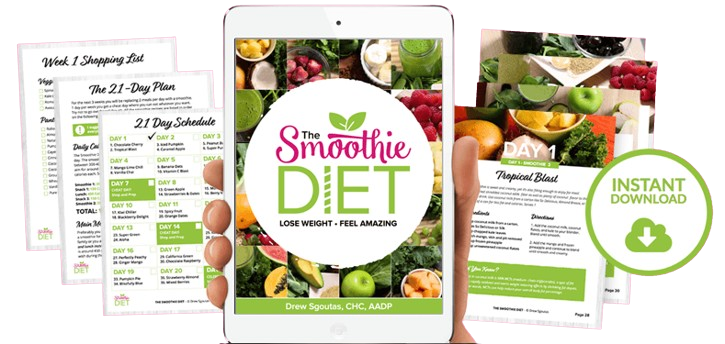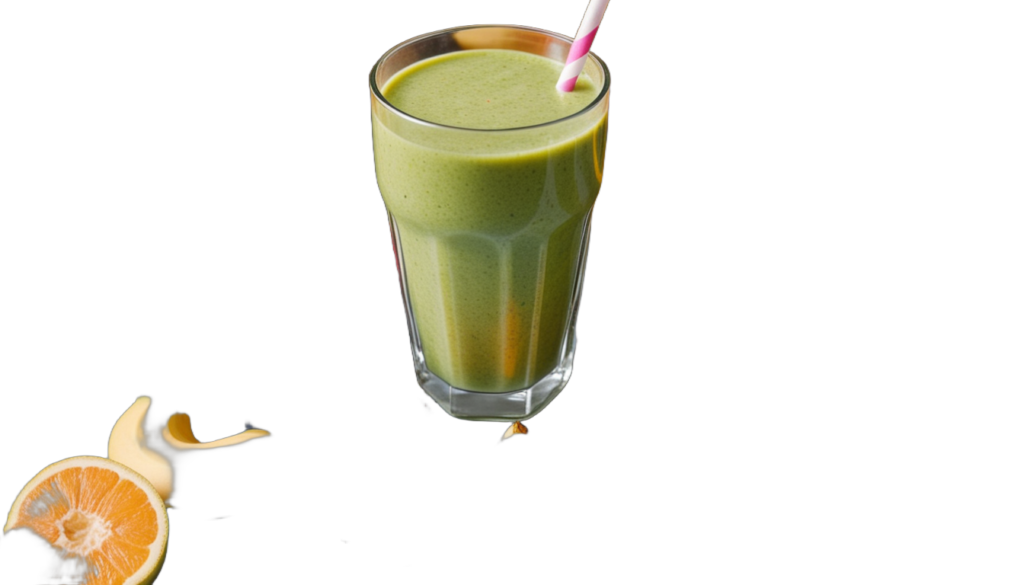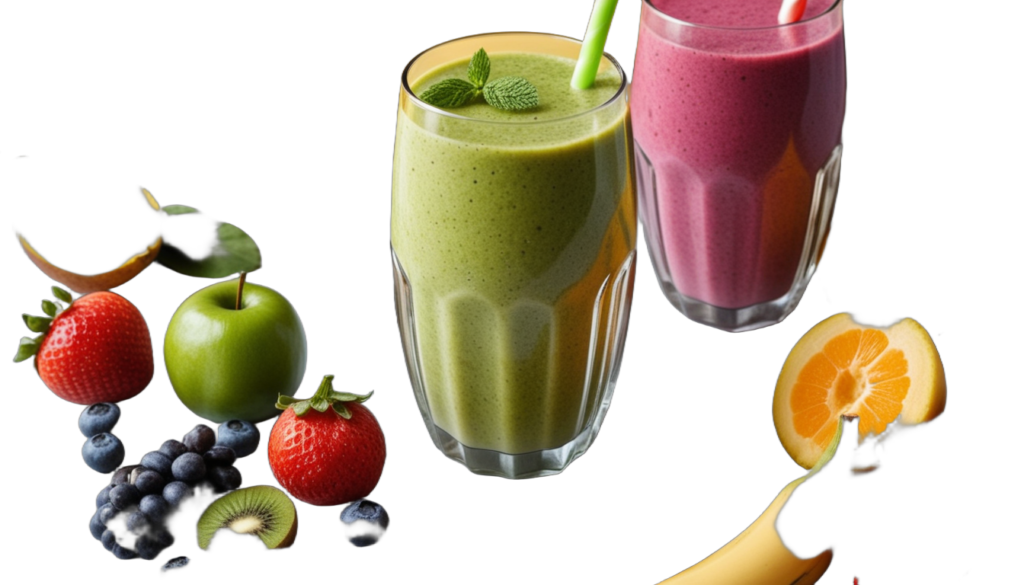
In the ever-evolving world of diet trends, the latest buzz is all about smoothies. Not just any smoothies, but a whole diet centered around them. Yes, you heard that right—an entire diet plan where your meals are blended into a frothy concoction of fruits, veggies, and maybe a sprinkle of protein powder for good measure. It’s called The Smoothie Diet, and it promises rapid weight loss, increased energy, and a general feeling of invincibility. But before you grab your blender and start throwing in everything from spinach to chia seeds, let’s take a closer look at what this diet is all about.
What is The Smoothie Diet, Anyway?
First things first, let’s break down what The Smoothie Diet actually entails. Created by health coach Drew Sgoutas, The Smoothie Diet is a 21-day program that involves replacing two of your three daily meals with—surprise, surprise—smoothies. These aren’t just any smoothies, though. They’re carefully crafted recipes designed to provide a balance of nutrients while keeping calories low. The idea is that by consuming these nutrient-dense smoothies, you’ll be able to lose weight quickly and healthily.
But wait, there’s more! The program also includes a meal plan for the third meal of the day, which is a solid food meal, along with a list of recommended snacks. And for those days when you just can’t stomach the idea of another liquid meal, there’s a “cheat day” built in where you can enjoy your favorite foods—within reason, of course.
The Claims: Magic in a Blender?
The Smoothie Diet promises a lot. According to the official website, you can expect to:
- Lose up to 10 pounds in just three days (yes, really).
- Increase your energy levels to superhero proportions.
- Improve your overall health, from glowing skin to better digestion.
- Get rid of stubborn belly fat that’s been clinging to you like a needy ex.
These claims are certainly enticing, especially if you’ve been on the weight-loss rollercoaster for a while. But as with any diet that promises quick and easy results, it’s worth taking a closer look.
Breaking Down the Smoothies: What’s in the Blender?
So, what exactly are you drinking on this diet? The smoothies in this program are packed with a variety of ingredients designed to keep you full while providing essential nutrients. Here’s a typical breakdown:
- Fruits: The base of most smoothies, fruits like bananas, berries, and mangoes are packed with vitamins, minerals, and fiber. Plus, they add natural sweetness, so you don’t feel like you’re drinking a glass of spinach-flavored water.
- Vegetables: Don’t worry; you won’t just be munching on kale and celery. These smoothies often include leafy greens like spinach and kale, but they’re blended in a way that you won’t even taste them. At least, that’s the goal.
- Protein: To keep you feeling full and to help build muscle, these smoothies include protein sources like Greek yogurt, protein powder, or even tofu. Yes, tofu in a smoothie. It’s a thing.
- Healthy Fats: Avocado, nuts, and seeds make an appearance to provide those all-important healthy fats that keep your brain and body running smoothly.
- Superfoods: Because no modern diet would be complete without them, you’ll find ingredients like chia seeds, flaxseed, and even spirulina thrown into the mix. Don’t know what spirulina is? Don’t worry, it sounds more like a spell from Harry Potter than something you should be eating, but it’s actually just algae—packed with nutrients, of course.
The Good, the Bad, and the Lumpy: Real User Experiences

Let’s face it, no diet is going to be perfect for everyone. The Smoothie Diet has its fair share of glowing reviews and some not-so-glowing ones. Here’s a look at what real users have to say:
The Good: Smooth Sailing
Many users rave about the convenience of the diet. With busy lives, the idea of throwing a bunch of ingredients into a blender and calling it a meal is incredibly appealing. No more stressing about what to cook for dinner or counting calories; it’s all done for you.
One user said, “I loved how easy it was to follow. The smoothies were delicious, and I didn’t feel deprived at all. Plus, I lost 7 pounds in the first week!”
Another benefit frequently mentioned is the increased energy levels. Several users reported feeling more awake and alert throughout the day, likely due to the influx of vitamins and minerals from all that fresh produce.
The Bad: A Case of the Hangries
On the flip side, not everyone is thrilled with the idea of drinking most of their meals. Some users reported feeling hungry throughout the day, especially in the beginning. This is somewhat expected, considering the calorie reduction that comes with replacing solid meals with liquid ones.
One user mentioned, “I was starving by the end of the day, and the smoothies, while tasty, just didn’t cut it for me in terms of keeping me full. I ended up snacking more than I should have.”
There’s also the issue of taste. While many enjoy the smoothies, others found them to be a bit…well, let’s just say “an acquired taste.” If you’re not a fan of green vegetables, drinking them every day might start to feel like a chore.
The Lumpy: Blending Issues
And then there’s the matter of texture. If you’re not blending your smoothies to perfection, you might find yourself chewing on a few chunks of kale. Not exactly the smooth, creamy drink you were hoping for.
One user confessed, “I learned the hard way that not all blenders are created equal. My first few smoothies were more like vegetable soup with fruit floating in it.”
The Science Behind the Smoothies: Is It Legit?
Now, let’s talk about the science. The Smoothie Diet claims to offer a balanced approach to weight loss, but does it hold up under scrutiny?
Caloric Deficit: The Secret Sauce
At its core, The Smoothie Diet works on the principle of caloric deficit. By replacing two meals a day with low-calorie smoothies, you’re likely to consume fewer calories overall, which can lead to weight loss. This is a tried-and-true method, but it’s not magic—it’s basic math.
However, it’s important to note that extreme caloric restriction can have downsides, especially if done for prolonged periods. While the diet is designed to be followed for 21 days, it’s crucial to listen to your body and ensure you’re not depriving yourself of essential nutrients.
Nutrient Density: A Plus
One of the positive aspects of The Smoothie Diet is the emphasis on nutrient-dense foods. Fruits, vegetables, and healthy fats are all great choices for anyone looking to improve their diet. The smoothies are packed with vitamins, minerals, and fiber, which can support overall health and well-being.
Sustainability: The Big Question
The biggest question surrounding The Smoothie Diet is whether it’s sustainable in the long run. While 21 days might seem manageable, can you realistically maintain this way of eating for months or even years? For some, the answer might be yes—especially if they enjoy smoothies and find them satisfying. For others, the lack of variety and the constant blending might become tiresome.
Should You Try The Smoothie Diet?
So, should you give The Smoothie Diet a whirl? That depends on your goals, your lifestyle, and, frankly, your love of smoothies.
The Ideal Candidate
The Smoothie Diet might be a good fit if you’re looking for a short-term plan to jumpstart weight loss or to reset your eating habits. It’s also a solid option if you’re someone who enjoys smoothies and doesn’t mind the idea of replacing meals with them.
Proceed with Caution
However, if you’re someone who needs a lot of variety in your diet or if you have a history of disordered eating, this diet might not be the best choice. It’s also worth considering the potential for muscle loss if you’re not careful about getting enough protein and strength training while on the diet.
Pro Tip: Blend It Your Way
If you do decide to try The Smoothie Diet, make it your own. Experiment with different recipes, add ingredients you love, and don’t be afraid to tweak the plan to fit your needs. Just because the diet suggests two smoothies a day doesn’t mean you can’t occasionally swap one out for a solid meal.

Final Sip: Wrapping It Up
In the crowded world of diet fads, The Smoothie Diet stands out for its simplicity and focus on whole, nutrient-dense foods. It’s not a magic bullet, but for those looking to lose weight and boost their health in a short period, it might just be the ticket. Remember, as with any diet, the key to success is finding what works for you and your lifestyle.
So, will you be blending your way to better health? The choice is yours, but if you decide to give it a try, just be sure to keep the lid on your blender tight—nobody wants a kale smoothie explosion first thing in the morning.
